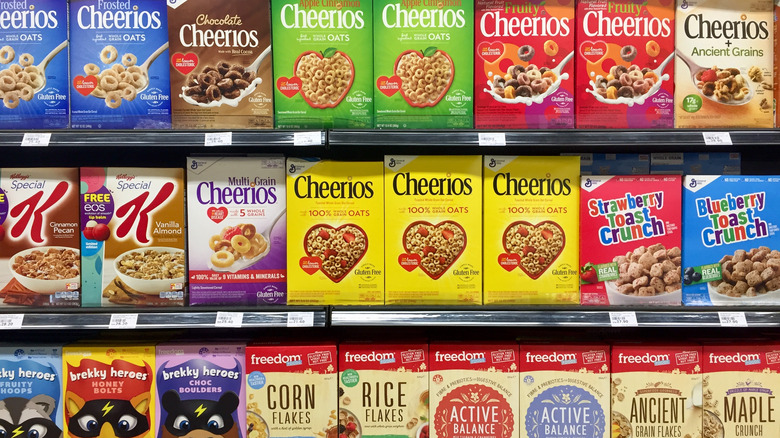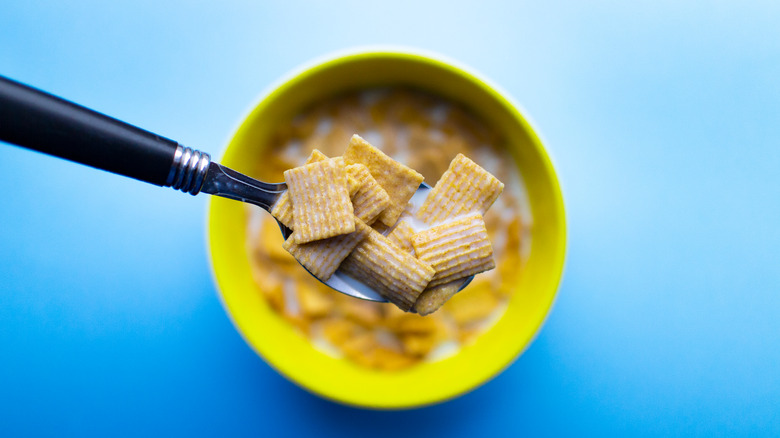What Happens To Your Body When You Eat Cereal Every Day
Eating cereal every day is a fairly common practice for many Americans. It's a quick and easy breakfast, a bedtime snack, and for those particularly busy, it may even be dinner. But is it bad to eat cereal on a daily basis? The answer depends on what type of cereal you're eating, what milk you're using, and what you're adding to your bowl. It might be a great nutritional breakfast choice, or you might be eating primarily sugar and empty calories — there are so many different cereal options that span the full spectrum of nutritional quality.
The primary problem with most types of cereal is that they're high in refined sugar, and low in whole grains and fiber. Additionally, it's almost impossible to stick to the portion sizes listed on the box. In an experiment testing consumers' knowledge of portion size, 92% of people surveyed overestimated what a portion was (via Consumer Reports).
Even fortified cereals aren't substitutes for real, whole foods that contain key nutrients. For example, a cereal may be fortified with iron, but you're better off opting for dark leafy greens to improve iron intake (via Livestrong).
How can you eat cereal every day in a healthy way?
Whether or not to have cereal for breakfast is a tough call. If you're not selecting your cereal, milk, and add-ins with care, you'll end up with a high-sugar breakfast that may lead to a crash in your blood sugar levels a couple of hours after you eat. Sugar is usually the culprit behind a mid-morning slump, and unfortunately, often leads to more carbohydrate cravings later in the day (via Eat This, Not That!).
If you eat a bowl of cereal on a daily basis, make sure it's a healthy one by creating a balance of macronutrients and key micronutrients. This doesn't mean you have to sacrifice taste and eat a fiber-packed breakfast cereal that tastes like cardboard, but it does mean skipping cereals that contain a toy in the box. Look for a cereal that's high in fiber and low in sugar, and don't be afraid of throwing in some healthy add-ins to your bowl. Adding chia seeds for healthy fats, blueberries for fiber and antioxidants, nuts for protein, and even substituting Greek yogurt in place of milk for bonus protein, can make your average everyday bowl of cereal into a nutritional powerhouse (via Shape).


